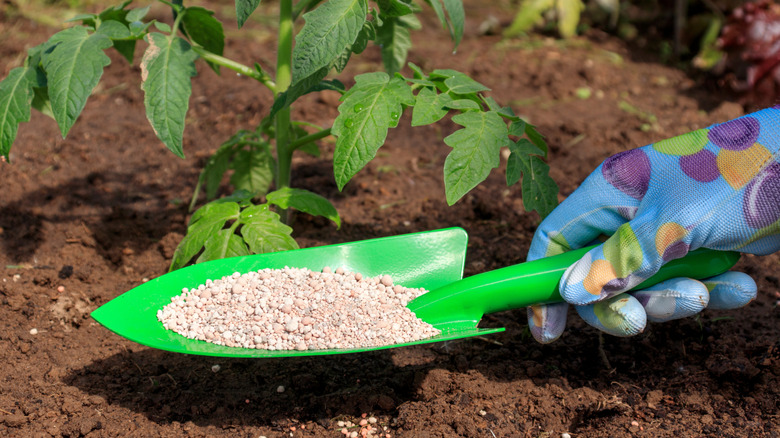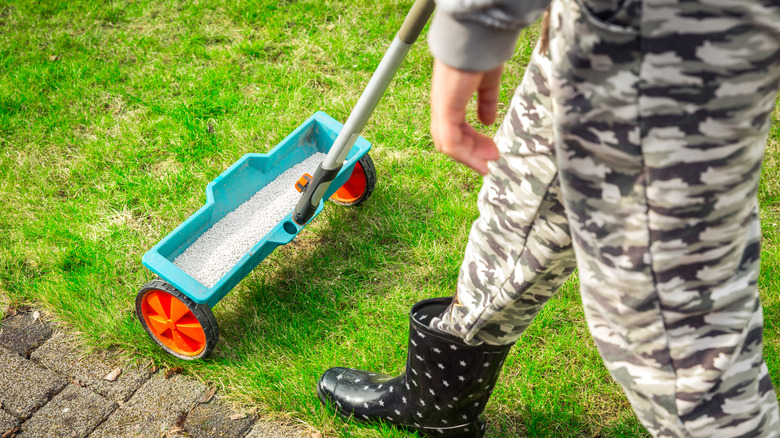One Of The Best Magnesium-Rich Fertilizers For Improving Your Plant's Growth
The health benefits of magnesium have been getting a lot of attention in recent years. Magnesium helps support a plethora of biochemical reactions in our bodies related to everything from muscle function to glucose control, and for people with certain conditions, magnesium supplements can be necessary. Similarly, the plants in our garden also need magnesium. If your soil is deficient, you may need a magnesium-rich fertilizer like dolomitic lime to improve growth and treat nutrient deficiencies in your plants.
Dolomite, often considered an organic fertilizer, is a naturally occurring rock composed of calcium magnesium carbonate, a mineral. Because dolomite is easy to apply, it's one of the best magnesium-rich fertilizers to use in your garden. Dolomitic lime, as the form used in lawn and garden spaces is often called, is a common fertilizer often applied to reduce soil acidity.
One of the reasons garden lime works to amend your soil is that it helps to change the soil pH, which naturally becomes more acidic in gardens over time. Also, lime is a good source of calcium and magnesium, which plants need to produce foliage and fruits. When lime is properly applied, it offers several benefits, including better crop yields and better overall nutrient availability. Dolomitic lime can also improve nitrogen fixation with leguminous plants like peas and beans.
Discover the pros and cons of using dolomitic lime to improve your plant's health
Plants need magnesium to make chlorophyll and photosynthesize the energy of the sun. That's why one of the first signs of magnesium deficiency in your soil is a loss of green color in plants' leaves. Magnesium also helps with cell division, respiration, and other metabolic functions. However, if you notice signs of magnesium deficiencies in your plants, get a soil test to confirm that your soil needs magnesium before you start adding amendments. A soil test will also measure the pH of your soil, which is important since lime can reduce soil acidity and raise your pH level.
When it comes to the drawbacks of using dolomite, the main problem stems from people overusing it or using it when it's not needed. For healthy plant growth, different minerals need to exist in various ratios in the soil; otherwise, nutrients can get tied up by chemical reactions, reducing their availability. Instead of helping your plants, you'd actually do more harm than good. You also need to account for the target pH range of various plants.
People sometimes put too much lime in their garden because the process can take a couple of years for the chemical reaction to complete. Although you may see results within a few months, it may not show up on soil tests right away. Avoid over-liming, which can be just as problematic by making soils too alkaline.

